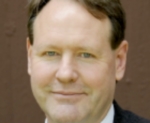Links to external sources may no longer work as intended. The content may not represent the latest thinking in this area or the Society’s current position on the topic.
Bioenergetics and the major evolutionary transitions
Satellite meeting organised by Dr Nick Lane, Professor John Allen, Professor John Raven FRS and Professor William Martin
Event details
Cellular bioenergetics produce shifts in genome architecture and vice versa. Some of the major transitions of evolution depend on this interaction. This meeting will focus on the interactions between genomes and energy flow, from the origin of cells in hydrothermal vents to photosynthesis, and from mitochondrial genes in the eukaryotic cell to the evolution of multicellular organisms.
Biographies of the organisers and speakers are available below. Recorded audio of the presentations will be available on this page after the event.
Click here to download the programme
Enquiries: Contact the events team.




